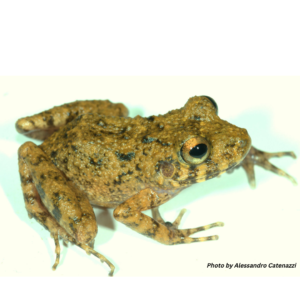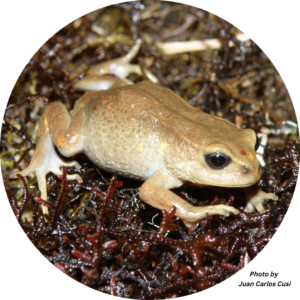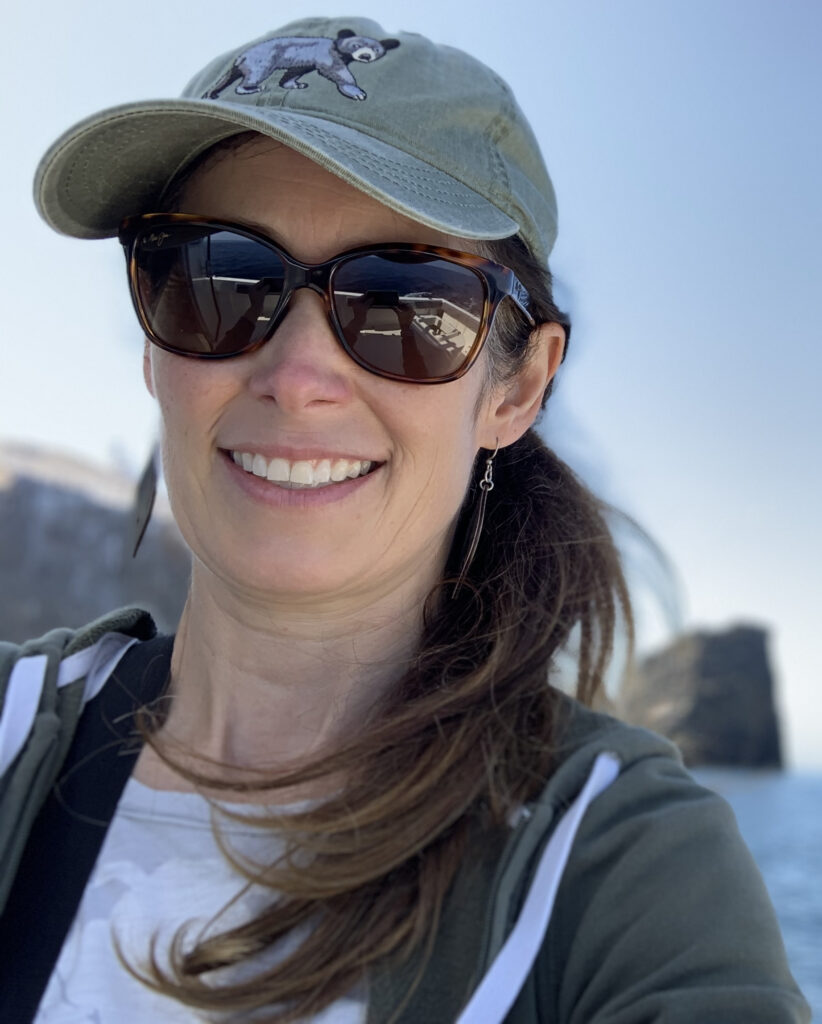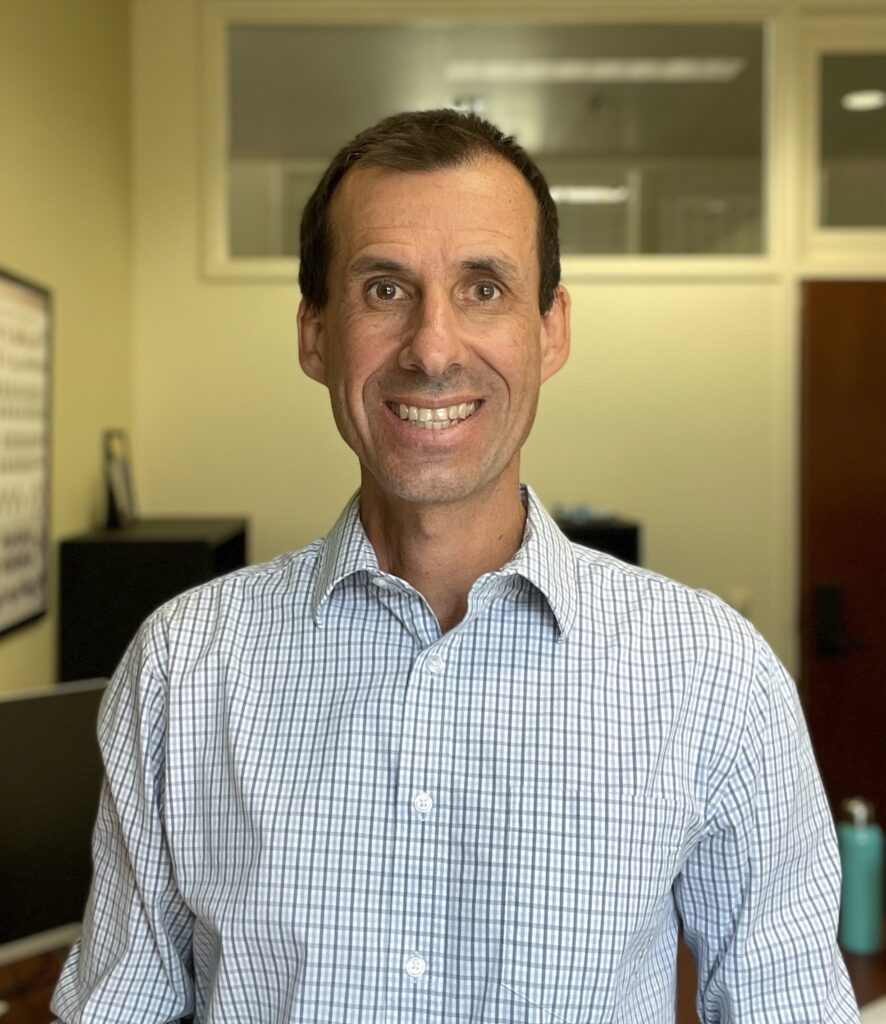CAMARILLO — CSU Channel Islands (CSUCI) students will learn molecular genetic techniques on campus, use sophisticated research equipment at Utah State University, and later travel to Peru on a quest to find out why frogs living at high elevations lose their ears and their “croak.”
“Probably because there are fewer species in the highlands, so there is not a lot of competition in terms of sound,” said Assistant Professor of Biology Rudolf von May, Ph.D., who wrote the grant with Associate Professor of Biology Allison Alvarado, Ph.D. “But we want to know how they communicate. Maybe it’s chemical.”
The National Science Foundation (NSF) has granted $471,862 to von May and Alvarado for the project, entitled “Phenotypic convergence and trait loss in high-elevation Andean frogs.” The ideas were based on previous research von May has published about the unique characteristics of this group of animals.
 Frogs are often studied by biologists because they provide an excellent model for research on development, behavior, anatomy and physiology. In this case, studying why members of the same amphibian family develop different traits based on their environment adds one more piece to the vast evolutionary picture.
Frogs are often studied by biologists because they provide an excellent model for research on development, behavior, anatomy and physiology. In this case, studying why members of the same amphibian family develop different traits based on their environment adds one more piece to the vast evolutionary picture.
“The better we understand evolutionary history of species, the better we can protect and preserve them,” Alvarado explained. “The high elevation habitat is very sensitive and with climate change, these frogs are likely at risk.”
Alvarado’s specialty is birds, but both she and von May have similar research interests in evolutionary ecology.
 The two CSUCI biologists are collaborating with another evolutionary biologist at Utah State University (USU), Molly Womack, Ph.D. The CSUCI students involved in the three-year project will travel to USU to learn how to use a specialized piece of equipment called a Micro Computed-Tomography (Micro-CT) scanner, which uses X-rays to recreate 3-D models of small objects such as frog skulls and skeletons.
The two CSUCI biologists are collaborating with another evolutionary biologist at Utah State University (USU), Molly Womack, Ph.D. The CSUCI students involved in the three-year project will travel to USU to learn how to use a specialized piece of equipment called a Micro Computed-Tomography (Micro-CT) scanner, which uses X-rays to recreate 3-D models of small objects such as frog skulls and skeletons.
“Using imaging software, they will learn how to analyze bones and other internal structures in preserved specimens,” von May said. “Additionally, they will use DNA sequences to study how species are related and identify patterns of repeated evolution at high elevations. Students will learn skills that are transferable once they enter the workforce.”
During the third year of the project, students will travel to the highlands of Peru, where these Andean frogs are native.
“We are collaborating with museums there where they have local collections and we will do a statistics workshop for Peruvian university students,” Alvarado said.
Both von May and Alvarado are excited about the many levels this project serves, from teaching students about genetic and molecular research to increasing participation in the STEM fields for underrepresented students to the transformative power of international travel. Part of the project will also include bringing Oxnard high school students on campus to familiarize the students with the STEM majors at CSUCI.
Besides gaining skills the students can use in a number of scientific careers, both Alvarado and von May hope the students benefit from the sheer wonder of the natural world.
“We want to show them just how incredible these systems are,” he said.
CALIFORNIA STATE UNIVERSITY CHANNEL ISLANDS — California State University Channel Islands (CSUCI) is Ventura County’s only public university and opened in 2002 as the 23rd campus in the CSU system serving the regions of Ventura, Santa Barbara, and Los Angeles counties, as well as the entire state. CSUCI is located between Camarillo and the Oxnard Plain, midway between Santa Barbara and Los Angeles and 25 miles north from Malibu.
The campus is nestled against the foothills of the Santa Monica Mountains and is a 10-minute drive from the Pacific Ocean. With more than 5,600 students, 24,500 alumni, and 1,000 employees, CSUCI is poised to grow in size and distinction, while maintaining one of the most student-focused learning environments in public higher education with more than 90 academic degrees, teaching credentials, certificates, and professional and community programs.
Connect with and learn more by visiting CSU Channel Islands or CSUCI’s Social Media.
The University encourages persons with disabilities to participate in its programs, events and activities. If you anticipate needing any type of accommodation, or have questions about the physical access provided, please contact the respective area below as soon as possible, but no later than seven (7) business days prior to the event/activity:
CSUCI Students
Disability Accommodations & Support Services: accommodations@csuci.edu
CSUCI Employees
Human Resources: angela.portillo@csuci.edu
Members of the Public
Title IX & Inclusion: titleix@csuci.edu


